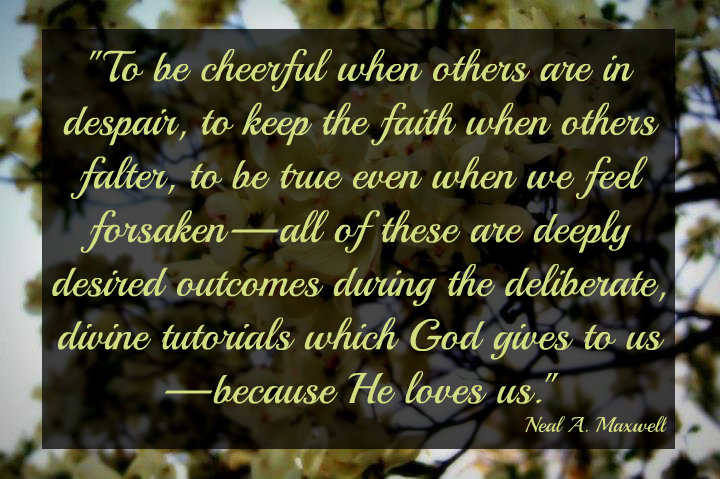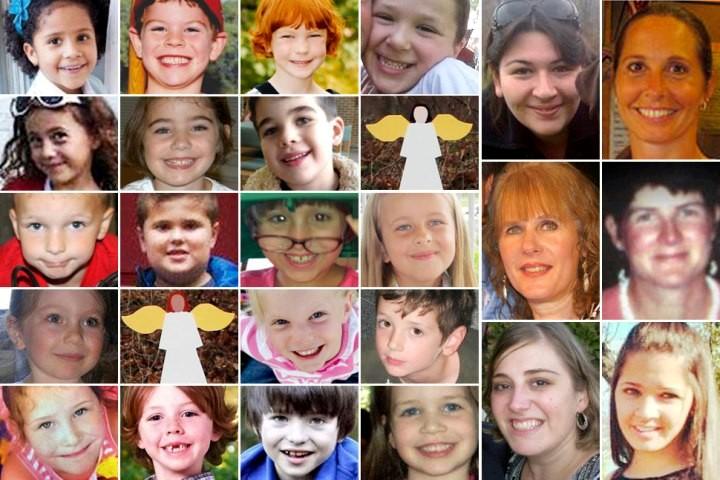Grief is an individual thing. It must have its deep days; it will not be short-changed and it cannot be designed by another. It takes up residence and is resistant to leave.
Letting go is the hardest part. How do you let go of that last goodbye or unrealized dreams of the future?
How do you return to normal when nothing will ever feel normal again?
When someone you love dies unexpectedly, you wonder why the sun is shining. How dare the world move on when it has come to a halt for you?
And yet, within hours of the Sandy Hook, CT school shootings, Robbie Parker, whose 6 year-old daughter, Emilie, had been killed, was able to speak with compassion, forgiveness and a positive eye to the future as he expressed how blessed he was to be Emilie’s father. He explained that his daughter lit up a room and had a way of making people happy:
As the deep pain begins to settle into our hearts we find comfort reflecting on the incredible person that Emilie was and how many lives she was able to touch in her short time here on earth.
It is a horrific tragedy and we want everybody to know that our hearts and our prayers go out to them. This includes the family of the shooter.
I can’t imagine how hard this experience must be for you, and I want you to know that our family and our love and our support goes out to you as well.
Tearfully, Parker asked in a Saturday evening press conference that the tragedy “not turn into something that defines us, but something that inspires us to be better, to be more compassionate and more humble people.”
 From my perspective, Parker’s tender expressions of love and forgiveness set a tone that turned the media discourse from “in your face” reporting of gruesome facts, to subdued and respectful dealing with the devastated community. Reverence for the lives that were lost and consideration for the families that must face the black hole of emptiness has allowed the nation to grieve and moved many to goodness.
From my perspective, Parker’s tender expressions of love and forgiveness set a tone that turned the media discourse from “in your face” reporting of gruesome facts, to subdued and respectful dealing with the devastated community. Reverence for the lives that were lost and consideration for the families that must face the black hole of emptiness has allowed the nation to grieve and moved many to goodness.
It is very different tone than when the Columbine shootings happened just a few miles from our house. The community was in despair, but there was no mercy from the media. They were caught up in carnage and chaos. Tents lined Clement Park for what seemed like weeks. Personal details, which should have been private, were prime-time news; blame was slung like mud in every direction. Of course, life finally settled down and allowed individual grieving and letting go, but it was much harder to move forward when repugnant details were recounted over and over in every form of media.
This time, while the shock was still fresh, Parker, as a grieving parent, quickly took the stage. While few people realize that he and his family are members of The Church of Jesus Christ of Latter-day Saints (often mistakenly called the “Mormon Church”), his firm beliefs in the doctrines of Jesus Christ were clear.
 Christ set an example of acceptance and mercy, though he was tortured, maligned and abused, when he looked upon his tormentors from the cross and said, “Father, forgive them for they know not what they do.” Those simple words released him from the bondage of revenge and anger. He let go. Parker and his wife, Alissa, have been able to do the same. They taught—close to two thousand years later—that same Christian concept in an interview with Katie Couric. Couric asked: “You said you have no anger toward the young man who did this?”
Christ set an example of acceptance and mercy, though he was tortured, maligned and abused, when he looked upon his tormentors from the cross and said, “Father, forgive them for they know not what they do.” Those simple words released him from the bondage of revenge and anger. He let go. Parker and his wife, Alissa, have been able to do the same. They taught—close to two thousand years later—that same Christian concept in an interview with Katie Couric. Couric asked: “You said you have no anger toward the young man who did this?”
Robbie Parker responded: “I really don’t. He was struggling with something very dark. I can’t have any judgment towards him for those things he might have been fighting.”
Couric asked the same question to Alissa Parker. Tearfully, she responded:
As hard as it is to deal with the loss of my daughter, I feel very blessed by my Heavenly Father that that’s not something I’ve had to struggle with… at all. I feel it would overwhelm me if I was feeling hatred for him or anger.
All I felt was sadness. I felt bad for him because I can’t imagine the state of mind someone is in to do something like that. That is such a dark and evil and awful place to be. If anyone is in a position like that I just can’t even imagine how hard that would be. I feel so sad that’s where he was. I really, truly feel that way.
In a final question, Couric asked how the couple will move forward with their life. Alissa responded:
I feel the only way to move forward is to think about those beautiful children and their lives and be so thankful that we all had them. Each of those children were so beautiful. I want to focus on those amazing lives and how inspiring they are.
Robbie concluded:
Emilie was such an amazing person we just want to make sure that she has a voice—that all of the children have a voice. Through what happened with them…we can do something to help each other out, to move people and communities to do better and be better.
 During one interview, Robbie said that the world is a better place because Emilie had been here. If others will follow the Parker’s lead—remembering the good instead of holding on to the heart-wrenching circumstances—letting go of anger and blame will allow sorrow to be softened, healing to begin and good to grow.
During one interview, Robbie said that the world is a better place because Emilie had been here. If others will follow the Parker’s lead—remembering the good instead of holding on to the heart-wrenching circumstances—letting go of anger and blame will allow sorrow to be softened, healing to begin and good to grow.
President Dieter F. Uchtdorf, Second Counselor in the First Presidency of The Church of Jesus Christ of Latter-day Saints, has said:
Let this be a time of remembrance of gratitude and a time of forgiveness. Let it be a time to ponder the Atonement of Jesus Christ and its meaning for each of us personally.
This article was written by Jan Mayer, a member of The Church of Jesus Christ of Latter-day Saints.



